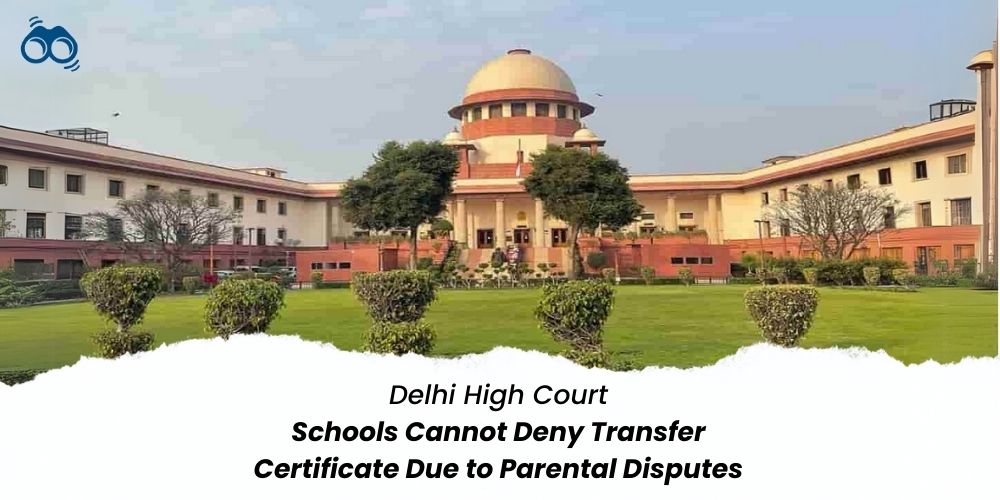Court Ruling Affirms Student Rights: Transfer Certificates Cannot Be Denied Over Family Conflicts
Delhi High Court Ensures Uninterrupted Education for Students Caught in Parental Disputes
Educational institutions serve as pillars of learning and development, offering stability and support to students. However, when schools become entangled in family disputes, the child bears the consequences. In a significant ruling issued on 30 April 2025, the Delhi High Court reaffirmed that schools cannot withhold a student's Transfer Certificate (TC) due to parental conflicts. Delivering the verdict, Justice Vikas Mahajan emphasised that a child's education and overall well-being must take precedence over matrimonial disputes. Recognising the importance of uninterrupted academic progress, the court directed the school to issue the TC within one week, ensuring compliance with legal obligations and safeguarding the student's educational journey.
By reinforcing the principle that a child's rights should remain protected regardless of family issues, the judgment highlights the need for schools to prioritise students' welfare above external conflicts. The case was brought before the Court after the mother of a minor girl filed a writ petition. Following her separation from the child’s father in April 2024, she relocated to Gurugram and enrolled her daughter in a new school. Despite the child completing an academic year there, her admission remained provisional, as the former school in Delhi had not issued the required TC. The school justified its inaction by citing a request from the father, who pointed to ongoing family litigation.
During the hearing, the petitioner’s counsel argued that no court order prohibited the issuance of the certificate and that the school's refusal was a direct violation of the child’s right to education under Section 5(3) of the Right of Children to Free and Compulsory Education (RTE) Act, 2009. Supporting this claim, the counsel for the concerned educational authority reminded the Court that schools are legally bound to issue TCs promptly when students transfer, warning that delays could lead to disciplinary action under existing service regulations.
Although the father's counsel conceded that no legal restraint existed, he explained that his client had merely requested the school to withhold the TC due to the pending litigation. Justice Mahajan, however, rejected this argument, underlining that such personal conflicts must not interfere with a child's access to education. Citing Section 5(3) of the RTE Act, the Court reiterated that delays in issuing a TC could attract disciplinary measures against the Head-Master or person in charge. It also referred to a previous ruling that asserted children’s rights must not be compromised due to parental disputes, and that guardianship matters should be resolved independently and under the law.
Ultimately, the Court ordered the school to issue the TC within a week and granted it the option to seek revival of the petition if it felt aggrieved, thereby disposing of the matter. This ruling serves as a critical reminder that children's right to uninterrupted education must always prevail over inter-parental discord.
Editor’s Note:
The recent ruling by the Delhi High Court stands as a timely and necessary reaffirmation of a child-first approach in educational governance. By clearly stating that a Transfer Certificate (TC) cannot be withheld due to ongoing matrimonial disputes, the Court has rightly underscored the principle that a child’s education must not be disrupted by parental conflict. This interpretation of the Right to Education Act reflects both legal clarity and moral responsibility, ensuring that children are not unfairly affected by issues beyond their control. The Court’s directive—backed by the possibility of disciplinary action for delay—sends a firm reminder that schools are duty-bound to act in the best interests of their students.
Skoobuzz commends this judgment as a step in the right direction, one that upholds the integrity of the education system and protects the rights of the child. It also serves as a crucial reminder to parents and institutions alike to keep the child's welfare at the centre of all decisions.














0 Comments (Please Login To Continue)